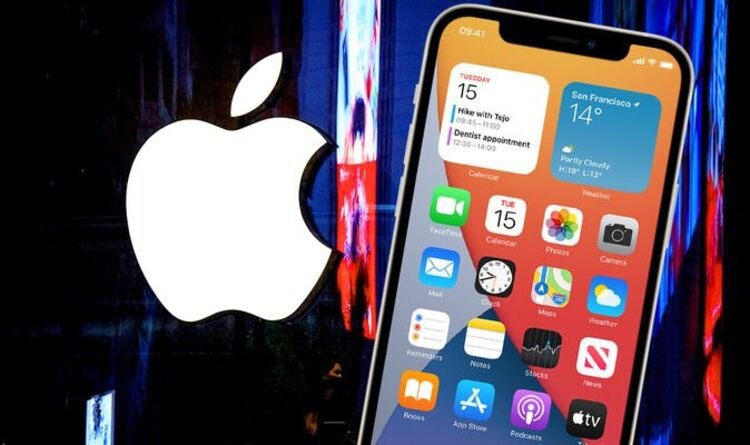A Surprising Security Flaw in Apple’s VoiceOver
In an era where digital security is more critical than ever, Apple—known for its rigorous privacy protocols—has recently confronted a major security vulnerability involving its VoiceOver feature. This flaw raised significant concerns as it affected a key accessibility tool used by millions. The VoiceOver password vulnerability risked user data security by potentially exposing passwords in clear text, an issue Apple addressed in a prompt update.
As users become increasingly reliant on mobile devices for both personal and professional use, ensuring data protection is paramount. This blog dives deep into the details of this vulnerability, how it came to light, and the steps Apple took to fix it. Furthermore, we’ll explore the broader implications for mobile app development services and how developers can prioritize security in accessible technologies.
Understanding VoiceOver and Its Importance
VoiceOver is an integral part of Apple’s suite of accessibility features. Designed to assist visually impaired users, VoiceOver reads aloud text on the screen, allowing users to navigate iOS devices, Macs, and Apple Watches with ease. For many, this feature is the gateway to using modern technology independently.
However, this accessibility tool, meant to enhance user experience, inadvertently became the weak point in Apple’s robust security architecture. A flaw within VoiceOver exposed a serious vulnerability where sensitive data, including passwords, could be spoken aloud inappropriately.
This bug led to widespread concern, not just because of its immediate consequences, but because it raised questions about the security of other accessibility features within the tech ecosystem.
How the Vulnerability Was Discovered
In a fast-evolving digital landscape, cybersecurity researchers are continuously probing systems to uncover potential vulnerabilities before they can be exploited. In Apple’s case, the discovery of the VoiceOver password vulnerability was part of a broader security audit. Researchers found that under certain circumstances, passwords saved in the system were being read aloud by VoiceOver, violating Apple’s otherwise strict password privacy policies.
This discovery sent shockwaves through the tech community. The bug, if left unaddressed, had the potential to expose passwords to malicious third parties—particularly in public or shared environments where VoiceOver was enabled. What’s more, many users rely on this feature without fully understanding the security risks.
Apple’s Swift Response to the Security Threat
Once the vulnerability was brought to Apple’s attention, the company moved quickly to fix the issue. Apple prides itself on maintaining one of the most secure mobile operating systems, so addressing the vulnerability was a top priority. Within days of the discovery, Apple released a patch to fix the problem in an iOS update.
This rapid response highlights Apple’s commitment to user security. However, it also underscored a need for continual security improvements, especially when it comes to the intersection of accessibility and mobile app development services. As mobile apps become more complex, they need to account for both functionality and security.
The Role of Mobile App Development Services in Security
The discovery of this vulnerability raises larger questions about the responsibility of mobile app development services. Developers working with accessibility features must ensure that security isn’t compromised in the process. In today’s interconnected world, mobile app developers are increasingly relied upon to create user-friendly, accessible, and secure apps.
For example, developers should always be mindful of how accessibility features like screen readers interact with password fields, payment systems, or any sensitive data. Mobile app development services need to incorporate rigorous security checks during the development process to prevent vulnerabilities like the VoiceOver bug from slipping through the cracks.
The Importance of Security in Accessibility Tools
Accessibility is a key area of focus for modern tech companies. Ensuring that everyone, including those with disabilities, can access technology is crucial. However, as the VoiceOver password vulnerability illustrates, accessibility features need to be thoroughly vetted for security risks.
Security and accessibility must go hand in hand. When developers build accessibility features, they must ensure that they don’t inadvertently expose users to risks. This includes considering how features such as text-to-speech or screen readers handle sensitive information.
By investing in security alongside accessibility, mobile app development services can create tools that are both user-friendly and secure, ensuring that all users can navigate the digital world safely.
How Apple’s Fix Restores User Trust
The quick response from Apple to fix this vulnerability has been critical in maintaining user trust. Apple users rely on the brand not just for cutting-edge technology, but for its reputation as a leader in digital privacy and security. By promptly releasing an iOS update that addressed the issue, Apple has reassured users that security remains a top priority.
However, trust in technology can be fragile. While the update fixed the immediate issue, it has also served as a reminder that even the most secure systems can have vulnerabilities. For users, this means staying vigilant and updating devices regularly to avoid falling victim to similar security flaws.
Lessons Learned for Mobile Developers
This incident provides valuable lessons for mobile app developers across the industry. First and foremost, developers must understand that even seemingly small oversights in coding can lead to major vulnerabilities. This is particularly true for developers working with sensitive data, such as passwords or financial information.
Mobile app development services must implement security audits and rigorous testing for all features, especially accessibility features like VoiceOver. This will help identify potential weaknesses before they can be exploited. Additionally, developers should adopt best practices for handling sensitive data, such as encrypting passwords and ensuring they are not stored in plaintext.
The Broader Implications for Cybersecurity
The VoiceOver password vulnerability isn’t just an isolated incident—it’s a reflection of the broader cybersecurity challenges faced by tech companies today. As technology becomes more advanced, so do the methods used by hackers and malicious actors. Even a company as security-conscious as Apple isn’t immune to these threats.
Mobile app development services must take these lessons to heart. The next wave of digital development will be defined by how well developers can balance innovation with security. Accessibility will remain a key focus, but so too will ensuring that the features designed to help users don’t end up compromising their safety.
Moving Forward
As we move forward, it’s clear that more emphasis needs to be placed on the security of accessibility features. Apple’s swift response to the VoiceOver password vulnerability sets a strong example, but the responsibility doesn’t end there. Developers need to continue refining their processes, ensuring that they build secure, user-friendly systems.
Mobile app development services play a crucial role in this endeavor. By designing apps that prioritize both accessibility and security from the start, they can contribute to a safer digital environment for all users. This includes investing in ongoing education and staying up to date with the latest security trends.
Ultimately, the VoiceOver incident is a reminder of the importance of vigilance in the tech industry. Accessibility features are critical for ensuring inclusivity in technology, but they must be built with security as a top priority.
Conclusion
Apple’s response to the VoiceOver password vulnerability demonstrates how crucial it is to address security issues quickly and effectively. While Apple acted swiftly to patch the problem, the vulnerability highlights the ongoing challenges in ensuring digital security, particularly when it comes to accessibility tools.
For developers, this serves as a lesson in the importance of security-first design. Mobile app development services must remain proactive, anticipating potential security flaws and addressing them before they become significant issues. By focusing on both accessibility and security, developers can ensure that technology remains inclusive and safe for all users.
Read More: How To Create a Winning Omnichannel Retail Strategy
For more info, visit: logictechnews







